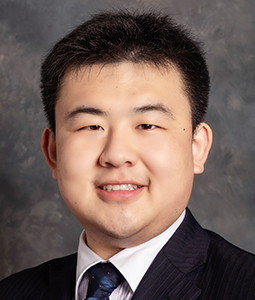College of Education
- SC.edu
- Study
- Colleges and Schools
- Colleges and Schools
- College of Education
- Faculty and Staff
- Hengtao Tang, Ph.D.
Faculty and Staff
Hengtao Tang, Ph.D.
| Title: | Associate Professor |
| Department: | Leadership, Learning Design, and Inquiry College of Education |
| Email: | htang@mailbox.sc.edu |
| Phone: | 803-777-7257 |
| Office: | Wardlaw 239 |

Education
Dual-title Ph.D. in Learning, Design, and Technology & Comparative and International Education, Pennsylvania State University
Biography
Hengtao Tang is an associate professor of Learning Design and Technologies at the University of South Carolina. His research interests address the intersection of self-regulated learning, multimodal data analytics, and artificial intelligence (AI) in education. Specifically, Hengtao applies multimodal data analytics to understand how learners regulate their learning and their collaborative problem solving in technology-enhanced learning environments and thereby creating AI-driven scaffolds to facilitate learners' disposition, knowledge, skills, and action outcomes toward STEM careers. His research projects have been funded by multiple agencies such as the National Science Foundation and the Department of Education.
Research
Self-regulated learning, multimodal learning analytics, artificial intelligence, collaborative problem solving, computer science education, STEM education, open educational resources
Selected Publications
Selected Publications
A full list of publications can be found on – Google Scholar and ResearchGate.
- Tang, H., Dai, M., Du, X., Hung, J., & Li, H. (2023). Understanding college students’ cognitive engagement in online collaborative problem solving: A multimodal data analysis, Distance Education. 44(2), 306-323. https://doi.org/10.1080/01587919.2023.2209025
- Tang, H. & Bao, Y. (2023). Understanding college instructors' value beliefs towards OER: A Diagnostic Classification Models approach, Education and Information Technologies. 28(6), 6825–6844. https://doi.org/10.1007/s10639-022-11455-0
- Tang, H., Dai, M., Du, X., Hung, J., & Li, H. (2023). An EEG study on college students' attention levels in a blended computer science class, Innovations in Education and Teaching International. https://doi.org/10.1080/14703297.2023.2166562
- Tang, H. & Bao, Y. (2022). Profiles of self-regulated learners in MOOCs: A cluster analysis based on a Rasch model, Interactive Learning Environments. https://doi.org/10.1080/10494820.2022.2129394
- Tang, H., Dai, M., Yang, S., Du, X., Hung, J., & Li, H. (2022). Multimodal analytics of students’ attention in online collaborative problem solving, Distance Education, 43(2), 290-317. https://doi.org/10.1080/01587919.2022.2064824
- Tang, H., Arslan, O., Xing, W., & Kamali-Arslantas, T. (2022). Exploring socially shared metacognition in collaborative problem solving: Learning analytics perspective. Journal of Computing in Higher Education. https://doi.org/10.1007/s12528-022-09318-1
- Tang, H. & Xing, W. (2022). Massive Open Online Courses for professional certificate programs? A perspective of professional learners’ longitudinal participation patterns. Australasian Journal of Educational Technology, 38(1), 136-147. https://doi.org/10.14742/ajet.5768
- Yang, B., Tang, H., Hao, L., & Rose, J. (2022), Untangling chaos in discussion forums: A temporal analysis of topic-relevant forum posts in MOOCs, Computers & Education, 178(2022), Article https://doi.org/10.1016/j.compedu.2021.104402
- Fegely, A. & Tang, H. (2022). Learning programming through robots: A mixed-methods study on the effects of educational robotics on preservice teachers’ programming comprehension and motivation, Educational Technology Research and Development, 70(6), 2211-2234. https://doi.org/1007/s11423-022-10174-0
- Bice, H. & Tang, H. (2022). Teachers’ beliefs and practices of technology integration at a school for students with dyslexia: A mixed methods study. Education and Information Technologies. 27(7), 10179–10205. https://doi.org/10.1007/s10639-022-11044-1
- Tang, H. (2021). Teaching teachers to use technology through Massive Open Online Course: Perspectives of interaction equivalency, Computers & Education, 174(2021), https://doi.org/10.1016/j.compedu.2021.104307.
- Tang, H. (2021). Person-centered analysis of self-regulated learner profiles in MOOCs: A cultural perspective. Educational Technology Research and Development, 69(2), 1247-1269. https://doi.org/1007/s11423-021-09939-w
- Tang, H., Lin, Y., & Qian, Y. (2021). Implementing renewable assignments to facilitate K-12 educators’ acceptance of Open Educational Resources: A mixed-methods inquiry, Educational Technology Research and Development, 69(6), 3209-3232. https://doi.org/1007/s11423-021-10046-z
- Tang, H., Lin, Y., & Qian, Y. (2020). Understanding K-12 teachers’ intention to adopt Open Educational Resources: A mixed methods inquiry. British Journal of Educational Technology, 51(6), 2558-2572. https://doi.org/1111/bjet.12937
- Tang, H. (2020). A qualitative inquiry of teachers’ experience with open educational practices: Perceived benefits and barriers of adopting open educational resources in K-12 settings. International Review of Research in Open and Distributed Learning, 21(3), 211-229. https://doi.org/10.19173/irrodl.v21i3.4750
- Tang, H., Xing, W., & Pei, B. (2019). Time really matters: Understanding the temporal dimension of online learning using educational data mining. Journal of Educational Computing Research, 57(5), 1326-1347. https://doi.org/10.1177/0735633118784705
- Xing, W., Tang, H., & Pei, B. (2019). Beyond positive and negative emotions: Looking into the role of achievement emotions in discussion forums of MOOCs, The Internet and Higher Education, 43. Article https://doi.org/10.1016/j.iheduc.2019.100690
- Tang, H., Xing, W., & Pei, B. (2018). Exploring the temporal dimension of forum participation in Massive Open Online Courses. Distance Education, 39(3), 353-372. https://doi.org/10.1080/01587919.2018.1476841
Selected Awards
- Garnet Apple Award (2023), Office of Provost, University of South Carolina
- Breakthrough Star Award (2023), Office of Vice President for Research, University of South Carolina
- Early Career Research Award (2023), Technology, Innovation, Cognition and Learning SIG, American Educational Research Association (AERA)
- Division C New Faculty Mentoring Program awardee (2020, 2022), AERA.
- Distinguished Service Award (2021), Association for Educational Communication and Technology (AECT)
- Charles M. Reigeluth Emerging Researcher Award (2021), AECT
- Outstanding ETR&D Journal Article Award (2021), AECT
- Presidential Service Award (2021), AECT International Division
- Early Career Research Award (2021), College of Education, University of South Carolina
- Early Career Scholarship Award (2021), South Carolina Conference on Innovations in Teaching and Learning in Higher Education (SCCITL)
- Distinguished Interdisciplinary Studies and Professional Development Alumni Award (2021), School of Interdisciplinary
- Studies and Professional Development, University of Southern Mississippi (USM)
- Excellence in Innovation Award (2020), Learner Engagement Division, AECT